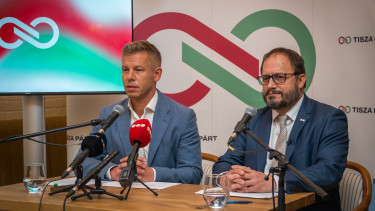Economy
Commission looks to link EU funds to rule of law compliance
Save article
Share
The proposal is intended to put pressure on Poland and Hungary, which have clashed with Brussels over their alleged democratic backsliding, and send a signal to other countries who might follow their path, the portal said.
How and indeed whether to condition EU aid to democratic standards has been fiercely debated in recent months within the Commission and among EU governments. The debate coincides with growing frustration in Brussels and among some EU countries over Hungary’s suppression of opposition voices and moves by Poland’s government to wrest control over the judiciary.The Commission’s approach looks to get around Warsaw and Budapest’s vehement opposition to placing conditions on EU aid by decoupling it from the budget itself and playing down the link to democracy concerns. Instead, the Commission will emphasize the need to “protect the financial interests" of the bloc and ensure the taxpayer-funded aid isn’t ill-spent, EU officials said. The absence of an independent judiciary makes it harder to do that in investigating cases of alleged fraud or waste.
Öttinger signaled his intentions last month in Berlin, saying that
The proposed measure needs the approval of national governments in the Council by a qualified majority representing 55% of member countries and 65% of the EU population.
But although the measure will not formally be part of the MFF, which will run from 2021 to 2027, member countries who feel targeted could still threaten to block the long-term budget over the plan. Even countries not in the firing line may be wary of giving Brussels such power to turn off the EU cash flow.
The proposal will be popular with net contributors to the budget from Western Europe, who are under pressure to increase their payments to fill the annual gap of EUR 12-13 billion left by Britain’s departure from the EU. They have insisted that countries that do not uphold the bloc’s values should not benefit from cash from Brussels.
Read more at Politico by clicking here.
Front page photo by MTI EPA, Olivier Hoslet
It risks exacerbating tensions between east and west, and is likely to be resisted by governments that are reluctant to give Brussels unprecedented new powers to financially sanction members.
The Commission’s approach seeks to get around a veto by Hungary or Poland. When Budget Commissioner Günther Öttinger unveils a draft seven-year EU budget today, the Commission will separately seek the authority for Brussels to halt future payments to countries whose judiciaries are deemed not to be independent, Politico added.The long-term budget, known as the Multiannual Financial Framework (MFF), requires unanimous support of EU countries. But the funding oversight mechanism needs the support of a “qualified majority" to be adopted into law.How and indeed whether to condition EU aid to democratic standards has been fiercely debated in recent months within the Commission and among EU governments. The debate coincides with growing frustration in Brussels and among some EU countries over Hungary’s suppression of opposition voices and moves by Poland’s government to wrest control over the judiciary.The Commission’s approach looks to get around Warsaw and Budapest’s vehement opposition to placing conditions on EU aid by decoupling it from the budget itself and playing down the link to democracy concerns. Instead, the Commission will emphasize the need to “protect the financial interests" of the bloc and ensure the taxpayer-funded aid isn’t ill-spent, EU officials said. The absence of an independent judiciary makes it harder to do that in investigating cases of alleged fraud or waste.
Öttinger signaled his intentions last month in Berlin, saying that
rule of law is an essential condition so that, in individual cases — of corruption and fraud, for example — we can claim back funds through the courts. We’ll make a proposal on that.
He added: “We want to suggest that the approval or refusal of funds can be decided by the Commission if the requirement for rule of law has been undermined."The proposed measure needs the approval of national governments in the Council by a qualified majority representing 55% of member countries and 65% of the EU population.
In other words, even if Poland and Hungary vote against the measure, it could still pass.
If the EU decides to apply the measure against a particular country, officials have proposed that the country would have to muster a qualified majority to block it.But although the measure will not formally be part of the MFF, which will run from 2021 to 2027, member countries who feel targeted could still threaten to block the long-term budget over the plan. Even countries not in the firing line may be wary of giving Brussels such power to turn off the EU cash flow.
The proposal will be popular with net contributors to the budget from Western Europe, who are under pressure to increase their payments to fill the annual gap of EUR 12-13 billion left by Britain’s departure from the EU. They have insisted that countries that do not uphold the bloc’s values should not benefit from cash from Brussels.
Read more at Politico by clicking here.
Front page photo by MTI EPA, Olivier Hoslet











